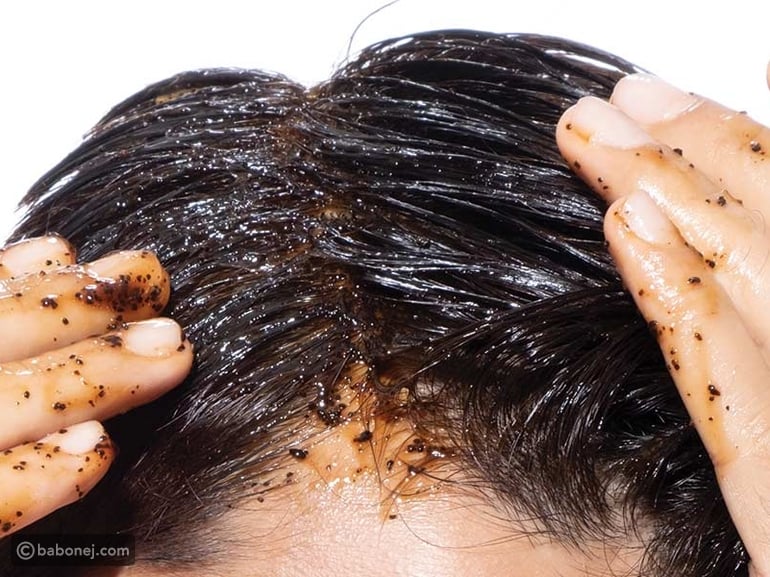Scalp Exfoliation and Its Magical Effect on Hair Health!

Scalp exfoliation is a therapeutic step that helps remove dead skin cells, impurities, and excess oils accumulated on the scalp’s surface. Similar to exfoliating the face or body, scalp exfoliation targets the scalp, which is exposed daily to factors that can lead to the buildup of dirt and oils, such as hair products, pollution, and sweat. Over time, these materials can clog pores, negatively impacting hair health and growth.
Is Scalp Exfoliation Important or Just an Extra Step ?
Without a doubt, scalp exfoliation offers multiple benefits, making it an essential part of your hair care routine. Here are some of the benefits:
- Improves Scalp Health: Exfoliation deeply cleanses the scalp, reducing the buildup of oils and dirt that can cause inflammation or dandruff.
- Stimulates Blood Circulation: The massage during exfoliation helps activate blood circulation in the scalp, increasing the flow of blood to hair roots and enhancing the delivery of oxygen and nutrients needed for hair growth.
- Promotes Hair Growth: By stimulating circulation and removing impurities, exfoliation can promote healthy and strong hair growth.
Enhances Product Effectiveness: A clean scalp is more receptive to absorbing nourishing products like oils and serums, boosting their effectiveness.
How to Exfoliate Your Scalp:
- Preparation: Wet your hair with warm water to open pores and soften the skin, making exfoliation more effective.
- Choose the Right Exfoliant: You can use a commercial scalp exfoliant or make a natural one at home. Ensure the exfoliant suits your hair type and does not contain ingredients that may cause allergies.
- Massage the Scalp: Apply a suitable amount of exfoliant to your scalp and gently massage in circular motions using your fingertips. Focus on areas where you feel buildup or dryness, and continue massaging for 3-5 minutes.
- Washing: After massaging, rinse your hair thoroughly with shampoo to remove any exfoliant residue. Ensure you rinse your hair completely to remove all impurities.
Moisturizing: After exfoliation, use a conditioner or oil to moisturize your scalp and hair. Moisturizing helps soothe the scalp and prevent dryness.
Examples of Scalp Exfoliants:
Various scalp exfoliants are available in the market to suit different needs:
- Salicylic Acid Exfoliants: Ideal for those with oily scalps, salicylic acid helps dissolve excess oils and clean pores.
- Activated Charcoal Exfoliants: Known for its ability to absorb impurities and toxins, activated charcoal is perfect for deep cleaning and removing stubborn impurities.
Natural Exfoliants: You can use natural ingredients to make a home exfoliant, such as mixing brown sugar and coconut oil or sea salt and olive oil. These natural ingredients are gentle on the scalp and provide effective and safe exfoliation.
The Role of Scalp Exfoliation in Reducing Hair Loss:
Hair loss is a common problem for many people, often caused by factors like clogged pores and oil buildup on the scalp. When impurities accumulate and pores are clogged, hair cannot grow properly, leading to weakened and falling hair.
Scalp exfoliation plays a crucial role in reducing hair loss by:
- Opening Pores: By removing buildup, pores are opened, allowing hair to grow naturally and healthily.
- Stimulating Circulation: Exfoliation improves blood flow to the scalp, enhancing the nourishment and strengthening of hair follicles.
Preventing Scalp Infections: Some types of dandruff and scalp infections can cause hair loss. Exfoliation helps prevent these problems by regularly cleaning the scalp.
in conclusion
Scalp exfoliation is an important step that should be part of your weekly hair care routine. It not only helps maintain a healthy scalp but also contributes to promoting hair growth and reducing hair loss. By choosing the right exfoliant and following the correct steps, you can enjoy healthy, strong hair full of vitality.

